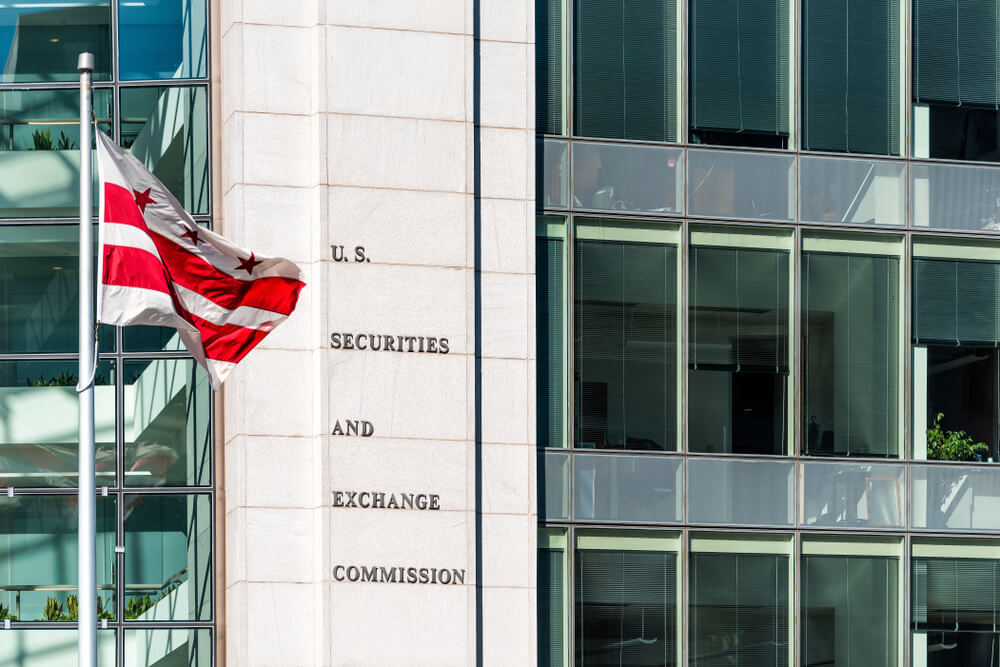The year ahead promises to be a momentous one for progress on ‘S,’ or social issues, in public policy solutions, as a recent ImpactAlpha Call explored. From the SEC’s imminent proposal on human capital management disclosures to historic levels of federal funds flowing into rural and low-income communities, there is a groundswell of activity aimed at supporting workers and creating more equitable economic opportunities for all Americans.
But even with all this promising activity on social issues, it is important that the impact investing community continue to push forward and not rest on our laurels. Already, there are signs that the increasingly vocal anti-ESG, or environmental, social and governance, movement in U.S. politics will fight to block meaningful progress on ‘S’ issues as part of their well-funded crusade to interfere with our financial markets and politicize decision-making by investors and businesses alike.
The encouraging news is that these attacks are out of step with what the American public actually cares about. Research has shown that ‘S’ issues — especially how companies treat workers, customers, and their communities — are overwhelmingly popular among Americans across political divides.
According to survey data from JUST Capital, 87% of Americans believe large U.S. companies have a responsibility to regularly increase wages to keep up with the cost of living, and 93% are in favor of having companies release wage ranges for different types of jobs. Large majorities of Americans also think that such companies that pay a living wage will be more profitable in the long term, will be more competitive in their industry, and will be better for the U.S. economy overall.
Americans across the board see investing in workers — by increasing pay, by providing time off and by ensuring health benefits — as not only consistent with these companies’ responsibility to shareholders, but also integral to how they serve people, communities and society at large.
Unfortunately, these facts will not stop opponents of ESG and ‘S’ issues in particular from spreading misinformation and sowing doubt about whether such factors belong in prudent decision-making. We see three distinct lanes of attack that impact investors should be aware of and ready to counter.
1. State-level bills restricting the use of ‘S’ factors in investment decision-making
Much of the anti-ESG activity to date has been unfolding at the state level, highlighted by a series of policies aimed at either (1) restricting state pension funds from considering ESG factors in their decision-making, and/or (2) prohibiting the state from engaging in a business relationship with any companies or financial institutions deemed to be “boycotting” the fossil fuel industry.
Just three months into 2023, there have already been at least 119 anti-ESG bills introduced across 30 states. These policy proposals have had a mixed success rate as more business and investor groups push back on criticisms of ESG by pointing out that ESG factors are relevant to well-informed decision-making and that restrictions on the use of such information is anti-free market.
We are now seeing Republican policymakers turn their attention to a range of ‘S’ issues with active proposals in at least 11 states. For instance, states including Oklahoma, Utah and Missouri are pursuing legislation to bar state contracts with companies that have taken public stances on social issues like access to abortions and gender affirming healthcare. Meanwhile, Republicans in states like Kansas, Wyoming and Iowa are attempting to prevent fiduciaries from considering certain “S” issues in making contracting and investment decisions, even when those factors could be financially relevant. Iowa’s version of the bill, for example, would ban consideration of board diversity and employee compensation.
It is too early to tell whether such proposals will attract much support. But impact investing advocates should be prepared to publicly voice their opposition and make it clear that ‘S’ issues are an important and widely accepted part of business and investment decision-making.
2. Increase in shareholder proposals on ‘S’ issues, both pro-S and anti-S
Another battleground for ‘S’ issues is unfolding at shareholder meetings. The 2022 proxy season saw a significant increase in the number of the shareholder proposals related to ESG topics. The 2023 proxy season is likely to offer more of the same, with several shareholder proposals calling on companies to conduct racial equity audits and improve efforts to combat workplace harassment and discrimination.
These proposals are firmly rooted in an understanding of what drives the long-term value of a company. For example, consider that racial equity settlements and sometimes even allegations of misconduct can cost companies millions of dollars. A company that proactively addresses potential issues like discriminatory hiring practices or a culture of sexual harassment will be better-positioned to withstand investor scrutiny in service of both shareholders and workers.
At the same time, we expect to see an increase in anti-ESG shareholder proposals aimed at discouraging companies from taking actions like improving the diversity of the boardroom or making racial equity commitments. According to data from the Sustainable Investments Institute, there were 27 anti-ESG proposals filed in 2022, the majority of which received less than 3% of votes. We expect to see a much larger number of such proposals in 2023, though it remains to be seen how many can eclipse the 5% threshold necessary to resubmit the proposal the following year.
Even if these anti-ESG and anti-S proposals are a long-shot to pass, it is important for investors to continue to signal their support for corporate action on ‘S’ issues.
3. Criticism of the SEC’s efforts to standardize corporate disclosures on human capital management
Though the SEC has recently made great strides in improving the transparency and integrity of our capital markets, Republicans are likely to put up roadblocks against further regulatory action. The SEC’s recent proposal on climate change disclosures is overwhelmingly supported by investors and investor groups, but public attacks by several Republican legislators and right-leaning business groups have helped delay its final release. This criticism is likely to carry over to other SEC proposals.
We got a firsthand preview of potential opposition to human capital management (HCM) disclosures at a House Subcommittee hearing last December on corporate ESG and workforce disclosures, in which I made the case that transparency and accountability are the hallmarks of efficient markets and explained how the current lack of information creates market inefficiencies, harming investors and weakening the entire financial system. Indeed, a growing chorus of investor and business groups have been calling on the SEC to pursue HCM-related disclosures on factors like worker compensation and diversity.
Impact investors’ calls to action are an important input into SEC rulemaking and future legal challenges. Collaborative efforts and sign-on letters also send a powerful signal to regulators, legislators and the general public that there is a broad base of support for action on ‘S’ issues.
Indeed, many of the social causes held up by anti-ESG critics as “woke” are overwhelmingly popular among the American public. According to a study by the Global Strategy Group on “The Shifting Politics of Doing Good in America,” 88% of Americans approve of companies that have a positive impact on their communities, and 77% agree that corporations have a responsibility to bring about social change on society’s most important issues.
These and other findings should give leaders across the impact investing and business communities the confidence necessary to speak up and speak out on a range of social issues.











